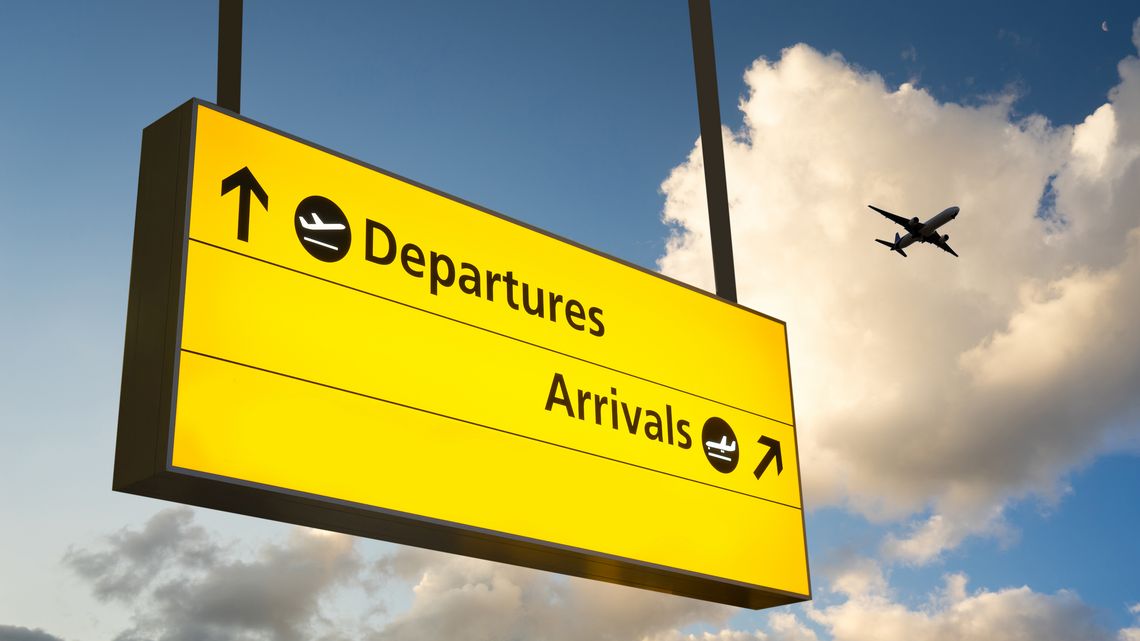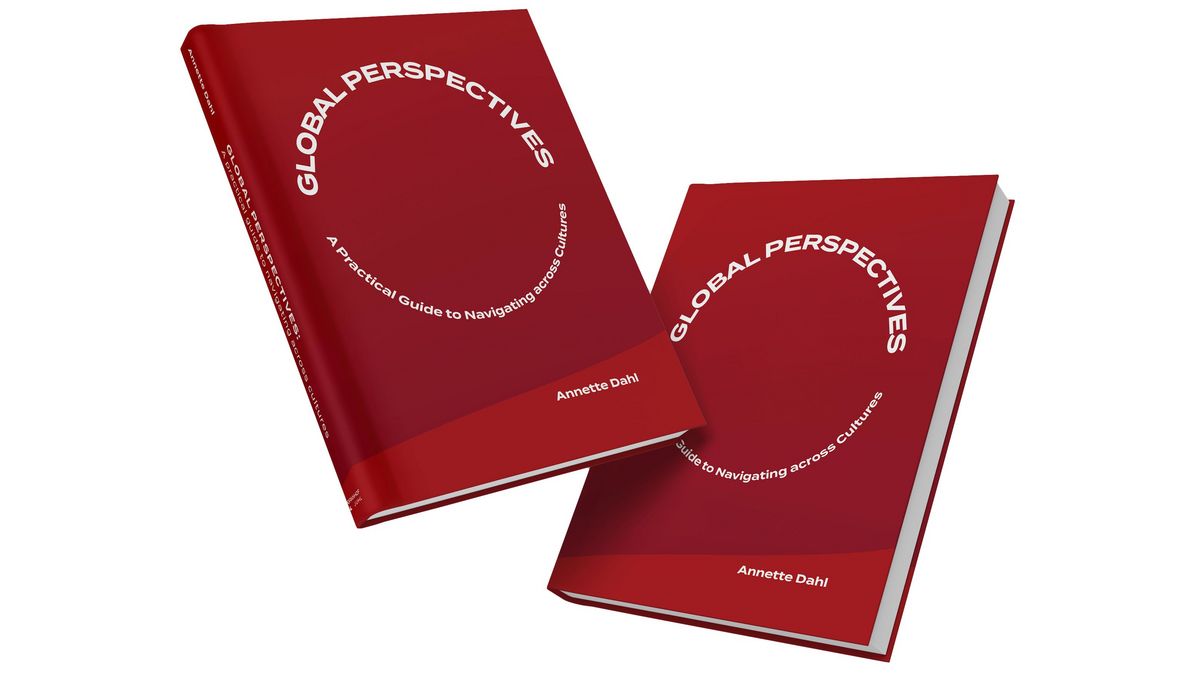
6 Things Successful Expats and Their Families Do Before They Return Home
Nobody would move abroad without planning or preparation – but have you remembered to prepare for your return home after your expat experience comes to an end?
Moving abroad can be an exciting, challenging, and life-changing experience. In fact, it can change you so much that returning home feels more foreign than familiar. In this blog post, we'll share tips for how to make sure you're prepared to end your time abroad as strongly as you started it.
This blog post is the third of a three-part series about how to have a successful relocation. In this final instalment, we focus on things that are important to do at the end of your relocation, before returning to your home country.
The inspiration for this series comes from Terry Dunne, C3 Consulting's U.S. specialist. Terry has more than 20 years of experience working and consulting globally and has developed a handy to-do list for families who are planning to move abroad for work.
The blog posts based on this list were written by Annette Dahl, C3's CEO and chief trainer, who has prepared many hundreds of employees and families for their future lives as expats, and Phoebe Berke, an American expat in Denmark.
So, what do successful expats and their families do before returning home? Read on…
1. They understand that moving back home also requires preparation
You will need to ask yourself many of the same questions that you asked yourself before you went away, such as what you want to accomplish in the first three months, as well as some new ones: What do we want to bring home with us? How have we changed?
You will also want to prepare to reunite with friends and family. It helps if you have stayed connected while abroad, such as by having a blog, writing home, and sharing pictures along the way. Because when you arrive back, people likely won't have the time to look through thousands of photos from your years abroad.
You may expect that people are going to be so curious and so interested and want to hear all about your experiences and all the things you did, but it doesn't always happen that way. Many returning expats experience that people are not open to listening to what they have learned or learning about how they can change to do things in a better way.
You may find that you are always bringing up something you learned, trying to share your knowledge, but that people are just not receptive: "In China, they do it like this …", "Oh in Canada we saw …" ,"Yeah, yeah, but that’s not how we do things here."
2. They prepare for reverse culture shock
This can also lead you to experience reverse culture shock, when you compare everything back home to where you just came from. It can be a big surprise for many families that it can be difficult to go home again.
As mentioned above, we experience that people will be glad you're back, they'll ask you how your trip was, and then they'll continue with their lives. It can be very disappointing when you feel completely changed by the experience, having grown and learned so much, and gained so many new skills, while the life you left behind is the same as you remember it.
One family we worked with at C3 described the experience of moving back to Denmark after living abroad as being like exchanging a 50” flat-screen high-definition TV with a small, old, black and white TV. It's not because Denmark was worse, it was that Denmark had remained the same while they had changed, and returning to their old life felt like a step backwards. They felt like when they came home, they had to fit back into a little box they had outgrown.
Try to look at it positively – reverse culture shock can be a sign that you really did grow and adjust and adapt to your foreign environment, that you had a meaningful expat experience. You have changed, and you're not the same as when you went away.
3. The assignee considers how the new skills from the posting can be best used back home
If, as a relocating employee, you return to your old workplace – for example, you were posted at a subsidiary outside Denmark, and you’re now returning to the Danish head office – consider how you can best put the skills you gained from the posting into play.
You probably learned a lot of new things during the posting that you will be able to use. For example, you may have gained insights into how the head office is perceived at the local site and realized that it might make sense to optimize some of the processes so they work better locally.
However, you should prepare yourself for the fact that your colleagues might not necessarily be open to hearing what you have learned and changing the way things are done. Therefore, you must choose your battles carefully. If you think something should change, focus on the area that matters most.
You should also be aware of which words you use if you want to make suggestions on how things should change. The more comprehensive and definitive your suggestions sound, the more resistance you’ll typically encounter. So, try using formulations such as: "What if we try to do this a little differently when communicating with our local sites? Let’s try it out as a little experiment to see if it works – otherwise we can just drop it."
4. Their accompanying partner prepares themselves for their future career
Maybe you come from a country such as Denmark where you and your partner have been used to working outside the home. But now you have been posted for three years with your partner in connection with his/her job abroad, and you have chosen not to work outside the home during this period.
From a career point of view, it might seem daunting to go back home, and you might be thinking: "I’ve not worked while living here; it’ll be impossible for me to find a job; there’s a huge gap in my résumé; what should I say I’ve been doing for the past three years?"
To avoid such concerns, it’s important that you consider early on in the posting how you want your future career to look. For example, make sure you keep a notepad handy where you can jot down a list of "expat skills" you acquire along the way. This could include competences such as a high degree of flexibility and patience, ability to adapt to new situations and a strong cultural understanding.
LinkedIn can also be a useful tool for your future career. Although you might not be working during the posting, you can use LinkedIn to keep yourself up to date professionally and to update your network about some of the skills and experience you gain during this time. Write articles, join groups related to your professional interests, and post and comment on relevant posts. Then your network will see that you’ve been active and engaged in the years that you have not worked.
So, living abroad can provide you with plenty of opportunities for development and learning that you can use when you return home – whether you worked during the posting or not. It’s just about how you interpret and pass it on to a potential future employer.
5. They consider the best educational pathways for their children
If your children are with you during the posting, it’s also important to consider well in advance before going home how their education will continue in your home country.
This is especially important if you have teenagers who are in high school. Maybe they started at IB (International Baccalaureate) while abroad – so check to see if they can continue their IB at an international school when they get home.
There can be major differences from country to country in relation to secondary education curriculum and exams. So, sometimes the best solution is for the working partner to return home a little earlier, while the other partner stays in the posting country until the family’s teenagers have completed their secondary education.
6. They maintain friendships made while living abroad
It can be difficult to stay in touch with your friends from your stay abroad after you have moved so far away. Some expat families go back to their home country while others move on to a new foreign assignment. If it's important for you to keep contact, you should be strategic and make a plan. If both families are abroad, they may visit each other during holidays. You can also use technology, such as WhatsApp, Facebook, WeChat, and other digital tools to keep in touch.
It can also be important to stay in touch with friends made abroad for the sake of your children, who can grow very close with their local friends. To best support your children, make a plan, be reasonable, and be explicit about how you are going to meet up and see each other in the future to make sure that the friendship is maintained.
The silver lining is that many expat families find it’s easier to maintain friendships made abroad than friendships from back home. This may be because the expectations are different: you know you won’t be in touch all the time so it feels like a special occasion when you do reach out to them. You might not communicate with your expat friends every month but instead find that you can reach out to them after a year of no contact and they will be so happy to hear from you.
Want to learn more about how to have a successful relocation?
This blog post is the third of a three-part series on successful relocations for expats and their families. You can find links to all parts of the series here.
Are you preparing for an international assignment? Read more here about our cultural training for relocation or contact us to chat about how we can help with your specific situation.
Want more inspiration on working and living globally? Follow us on LinkedIn and sign up for our newsletter using the form below.

